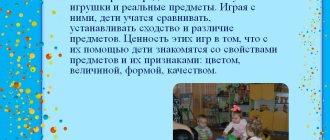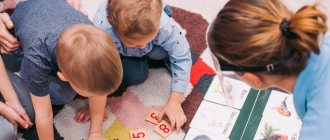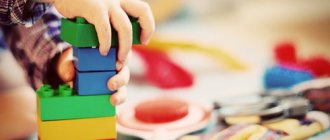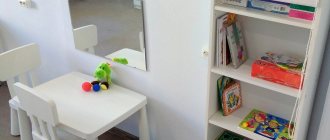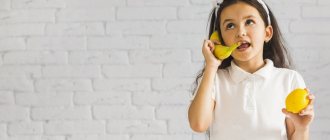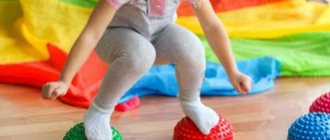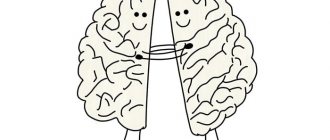Games for developing facial expressions for children
With proper organization of activities, games for the development of facial expressions can become a favorite pastime for children. This little hobby has another meaning: it develops emotional expressiveness, since all facial expression games are associated with certain emotions. And of course, the kids are guaranteed a great mood and a lot of positive feelings, because all they have to do is grimace and make funny faces.
As a facial warm-up, you can use a simple listing of emotions, each of which children should depict using facial expressions.
Nesmeyana
A fun game in which children take turns trying to make Princess Nesmeyana laugh, using only gestures and facial expressions. The child playing the role of Nesmeyana must restrain himself as long as possible, and if he does laugh, then the winner takes his place. The game continues until all the children try on the role of Nesmeyana, or until they get tired of it.
Examples of exercises
Here are some simple exercises for developing facial expressions that you can do at home.
- I'm surprised (raise eyebrows high).
- I'm angry (the kid frowns, without moving his lips).
- I was scared (the child opens his eyes wide).
- A mean smile (the preschooler smiles only with his closed lips, his eyes are not involved).
- Crooked smile (only one corner of the mouth is involved, moving towards the ear). Repeat on the other side, then alternate.
- Fish. Open your mouth, hold until count 5, close;
- Saw. The hand rests on the chin, the baby moves the lower jaw to the sides without turning the head.
- Ruminant. The preschooler moves his lower jaw in turn in all directions (up and down, forward and backward).
- I smell it. The baby flares his nostrils, inhaling.
- Tricky. You need to narrow your eyes like slits.
- Contempt. When smiling, the child wrinkles his nose and raises his upper lips.
- Disgust. The lower lip must be pulled down.
- Blind Man's Bluff. The baby needs to forcefully close and open his eyes.
- I'm falling asleep. The child slowly closes and opens his eyes.
- On the alert. The eyes are closed one by one.
- I wink. A preschooler winks first with one eye and then with the other.
You can find many similar exercises and games for preschool children. They are not a miracle cure; you should not rely only on them if the child has a serious diagnosis. But in combination with other activities and treatment (when it is indicated), facial gymnastics makes a significant contribution to the correction of sound pronunciation in children. And, as you know, you shouldn’t postpone this process, otherwise you could waste precious time.


